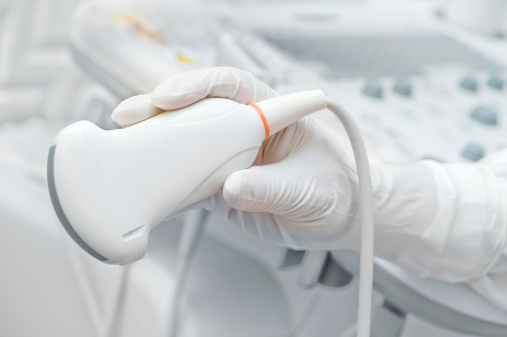First symptoms of pregnancy
Heartbeat, foetal movements, positive tests
What are the positive symptoms and signs of pregnancy? The detection of foetal heartbeat, baby’s movements, and positive pregnancy tests, in blood and urine. Now all we have to do is make sure the embryo is correctly implanted and monitor everything to see that it is developing normally. Some signs are not physically noticed by the pregnant woman and are detected only by obstetric examinations and tests.
First ultrasound scan
Usually, you go to the doctor's suspecting or knowing that you are already pregnant. During this first consultation, the doctor will use an ultrasound scan to confirm the pregnancy.
By means of ultrasound scanning, the doctor will be able to observe the inside of the patient’s uterus to check that there is an embryo growing.
- From the fifth week of the pregnancy, parts of the baby's body can be seen more easily.
- You usually wait until the sixth or eighth week of the pregnancy to check the foetal heartbeat, because that is when it can be measured properly. An echo-Doppler is normally used to do this as this is an ultrasound machine that is able to detect the movement of liquid, in this case blood.
First foetal movements
Foetal movements can be detected by the mother-to-be herself from week 20 of the pregnancy, and earlier if it is not the woman’s first pregnancy. She interprets them as "kicks", although in reality they are varied movements that the foetus makes with its limbs and that shake the amniotic fluid, impacting the wall of the mother's womb. The movements can also be observed with an ultrasound scan, and the foetus’s breathing movements are especially important. In the uterus, the foetus breathes amniotic fluid instead of air and this is important for the development of the lungs. Movements also indicate that the baby's nervous and muscular systems are developing correctly.
Urine analysis: better wait a week
When the fertilised egg implants into the uterus, its cells begin to make a substance called human chorionic gonadotropin (hCG). This substance is important for a smooth pregnancy. During the first few obstetrics visits, your obstetrician will test the levels of this hormone in your body, which will gradually rise. It can be detected in blood and urine, but it is more convenient to test the urine than to draw blood. This substance is the same as that detected by pregnancy tests, which have been available over-the-counter in pharmacies for two decades:
- They are able to detect hCG after a few days of missed period, although it is better to wait at least a week.
- The test is simple: you deposit about eight drops of urine on a stick, where a sign will appear indicating whether or not there is hCG, i.e., whether you are pregnant or not.
- The test can be inaccurate and confirm a non-existent pregnancy, or vice versa. You must go to your doctor if the test confirms the pregnancy, but also if you continue to have symptoms.
Blood test to confirm the pregnancy
The hormones that appear days after the egg is implanted in the wall of the uterus can also be found in the blood. A simple blood test can find high hCG levels that indicate a woman is pregnant. In order to carry out this test, a blood sample is taken by a health care provider. This is usually done on the first visit to the gynaecologist to confirm the pregnancy, but normally the pregnant woman has already taken a urine test.









